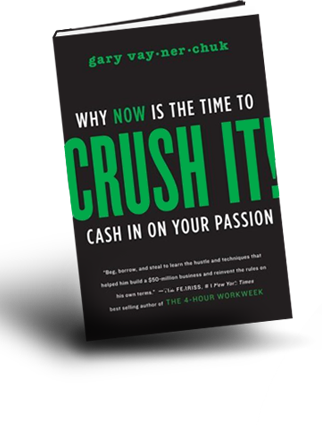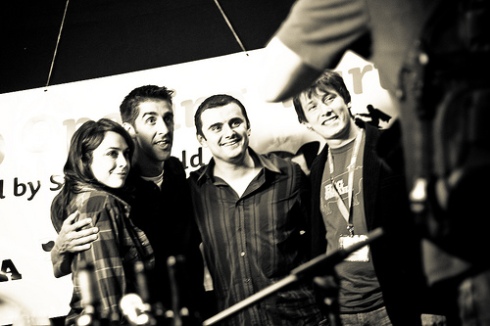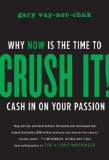- Let’s start with a bang: don’t keep a schedule.He’s crazy, you say!
I’m totally serious. If you pull it off — and in many structured jobs, you simply can’t — this simple tip alone can make a huge difference in productivity.
By not keeping a schedule, I mean: refuse to commit to meetings, appointments, or activities at any set time in any future day.
As a result, you can always work on whatever is most important or most interesting, at any time.
Want to spend all day writing a research report? Do it!
Want to spend all day coding? Do it!
Want to spend all day at the cafe down the street reading a book on personal productivity? Do it!
When someone emails or calls to say, “Let’s meet on Tuesday at 3”, the appropriate response is: “I’m not keeping a schedule for 2007, so I can’t commit to that, but give me a call on Tuesday at 2:45 and if I’m available, I’ll meet with you.”
Or, if it’s important, say, “You know what, let’s meet right now.”
Clearly this only works if you can get away with it. If you have a structured job, a structured job environment, or you’re a CEO, it will be hard to pull off.
But if you can do it, it’s really liberating, and will lead to far higher productivity than almost any other tactic you can try.
This idea comes from a wonderful book called A Perfect Mess, which explains how not keeping a schedule has been key to Arnold Schwarzenegger’s success as a movie star, politician, and businessman over the last 20 years.
Want to meet with Arnold? Sure, drop on by. He’ll see you if he can. But you might want to call first. Sorry, he doesn’t schedule appointments in advance.
As a result, for 20 years he has been free to work on whatever is most important in his life at any time.
Those of you in California may recall how, once Arnold decided to run for Governor, he went into a blaze of action and activity that resulted in a landslide victory. The book attributes this in part to the fact that his schedule was completely clear and he could spend all day, every day on his new political career, without having to worry about distractions or commitments.
If you have at any point in your life lived a relatively structured existence — probably due to some kind of job with regular office hours, meetings, and the like — you will know that there is nothing more liberating than looking at your calendar and seeing nothing but free time for weeks ahead to work on the most important things in whatever order you want.
This also gives you the best odds of maximizing flow, which is a whole ‘nother topic but highly related.
I’ve been trying this tactic as an experiment in 2007, as those of you who have emailed me to suggest we get together or that I go to a conference or to a meeting will attest. And I am so much happier, I can’t even tell you. I get so much more time to focus on the things that really matter — in my case, my two companies, my nonprofit boards, and my lovely wife.
The other great thing about this tactic is that it doesn’t have to be all or nothing — there are quite a few things that still sneak onto my calendar that I really can’t get out of. But one is still able to draw the line between “must do” and “sounds interesting but I’m not keeping a schedule”.
- Keep three and only three lists: a Todo List, a Watch List, and a Later List.The more into lists you are, the more important this is.
Into the Todo List goes all the stuff you “must” do — commitments, obligations, things that have to be done. A single list, possibly subcategorized by timeframe (today, this week, next week, next month).
Into the Watch List goes all the stuff going on in your life that you have to follow up on, wait for someone else to get back to you on, remind yourself of in the future, or otherwise remember.
Into the Later List goes everything else — everything you might want to do or will do when you have time or wish you could do.
If it doesn’t go on one of those three lists, it goes away.
- Each night before you go to bed, prepare a 3×5 index card with a short list of 3 to 5 things that you will do the next day.And then, the next day, do those things.
I sit down at my desk before I go to sleep, pull up my Todo List (which I keep in Microsoft Word’s outline mode, due to long habit), and pick out the 3 to 5 things I am going to get done tomorrow. I write those things on a fresh 3×5 card, lay the card out with my card keys, and go to bed. Then, the next day, I try like hell to get just those things done. If I do, it was a successful day.
People who have tried lots of productivity porn techniques will tell you that this is one of the most successful techniques they have ever tried.
Once you get into the habit, you start to realize how many days you used to have when you wouldn’t get 3 to 5 important/significant/meaningful things done during a day.
- Then, throughout the rest of the day, use the back of the 3×5 card as your Anti-Todo List.This isn’t a real list. And the name is tongue firmly in cheek.
What you do is this: every time you do something — anything — useful during the day, write it down in your Anti-Todo List on the card.
Each time you do something, you get to write it down and you get that little rush of endorphins that the mouse gets every time he presses the button in his cage and gets a food pellet.
And then at the end of the day, before you prepare tomorrow’s 3×5 card, take a look at today’s card and its Anti-Todo list and marvel at all the things you actually got done that day.
Then tear it up and throw it away.
Another day well spent, and productive.
I love this technique — being able to put more notches on my accomplishment belt, so to speak, by writing down things on my Anti-Todo list as I accomplish them throughout the day makes me feel marvelously productive and efficient. Far more so than if I just did those things and didn’t write them down.
Plus, you know those days when you’re running around all day and doing stuff and talking to people and making calls and responding to emails and filling out paperwork and you get home and you’re completely exhausted and you say to yourself, “What the hell did I actually get done today?”
Your Anti-Todo list has the answer.
By the way, in order to do this, you have to carry a pen with you everywhere you go. I recommend the Fisher Space Pen. It’s short and bullet-shaped so it won’t poke you in the thigh when it’s in your pocket, it’s wonderfully retro, it helped save the Apollo 11 mission, and it writes upside down. What’s not to like?
- Structured Procrastination.This is a great one.
This one is lifted straight from the genius mind of John Perry, a philosophy professor at Stanford.
Read his original description, by all means. You even get to see a photo of him practicing jumping rope with seaweed on a beach while work awaits. Outstanding.
The gist of Structured Procrastination is that you should never fight the tendency to procrastinate — instead, you should use it to your advantage in order to get other things done.
Generally in the course of a day, there is something you have to do that you are not doing because you are procrastinating.
While you’re procrastinating, just do lots of other stuff instead.
As John says, “The list of tasks one has in mind will be ordered by importance. Tasks that seem most urgent and important are on top. But there are also worthwhile tasks to perform lower down on the list. Doing these tasks becomes a way of not doing the things higher up on the list. With this sort of appropriate task structure, the procrastinator becomes a useful citizen. Indeed, the procrastinator can even acquire, as I have, a reputation for getting a lot done.”
Reading John’s essay was one of the single most profound moments of my entire life.
For example, I hate making phone calls. Hate it. Love sending emails, enjoy seeing people face to face (sometimes), but I hate making phone calls.
I can get so much done while I am avoiding making a phone call that I need to make, I can barely believe it.
In fact, that’s what’s happening right now.
- The other key two-word tactic: Strategic Incompetence.The best way to to make sure that you are never asked to do something again is to royally screw it up the first time you are asked to do it.
Or, better yet, just say you know you will royally screw it up — maintain a strong voice and a clear gaze, and you’ll probably get off the hook.
Of course, this assumes that there are other things that are more important at which you are competent.
Which, hopefully, there are.
Organizing the company picnic, sending faxes or Fedexes, negotiating with insurance brokers, writing in plain English… the list of things at which one can be strategically incompetent is nearly endless.
- Do email exactly twice a day — say, once first thing in the morning, and once at the end of the workday.Allocated half an hour or whatever it takes, but otherwise, keep your email client shut and your email notifications turned off.
Anyone who needs to reach you so urgently that it can’t wait until later in the day or tomorrow morning can call you, or send a runner, or send up smoke signals, or something else.
Or, more likely, find someone else who can do whatever it is that needs doing.
(If you communicate with your spouse or key family members via email during the day, then just set up a separate email account just for them and leave that open all day, but keep your primary email closed. And never give out the family email address to anyone noncritical — including your boss.)
Only doing email twice a day will make you far more productive for the rest of the day.
The problem with email is that getting an email triggers that same endorphin hit I mentioned above — the one that a mouse gets when he bonks on the button in the cage and gets a food pellet.
Responding to an email triggers that same hit.
The pleasure chemical hits your neocortex and you go “ahhh” inside and feel like you’ve done something.
So you sit and work with your mail client open and you interrupt your work every time an email comes in and you answer it and you send another email and you feel great in the moment.
But what you’re really doing is fracturing your time, interrupting your flow, and killing your ability to focus on anything long enough to get real high-quality work done.
This one is far easier to say than do. And it won’t be feasible during projects where lots of updates during the day really are important — raising money, for example, or closing a big deal.
Me, I’m just trying to get down to checking email only a half dozen times per day.
- When you do process email, do it like this:First, always finish each of your two daily email sessions with a completely empty inbox.
I don’t know about you, but when I know I have emails in my inbox that haven’t been dealt with, I find it hard to concentrate on other things.
The urge to go back to my email is nearly overpowering.
(I am apparently seriously addicted to endorphins.)
Second, when doing email, either answer or file every single message until you get to that empty inbox state of grace.
Not keeping a schedule helps here, a lot, if you can pull it off — you can reply to a lot of messages with “I’m sorry, I’m not keeping a schedule in 2007, I can’t commit to that.”
Third, emails relating to topics that are current working projects or pressing issues go into temporary subfolders of a folder called Action.
You should only have Action subfolders for the things that really matter, right now.
Those subfolders then get used, and the messages in them processed, when you are working on their respective projects in the normal course of your day.
Fourth, aside from those temporary Action subfolders, only keep three standing email folders: Pending, Review, and Vault.
Emails that you know you’re going to have to deal with again — such as emails in which someone is committing something to you and you want to be reminded to follow up on it if the person doesn’t deliver — go in Pending.
Emails with things you want to read in depth when you have more time, go into Review.
Everything else goes into Vault.
Every once in a while, sweep through your Action subfolders and dump any of them that you can into Vault.
(And do the same thing for messages in your Pending folder — most of the things in there you will never look at again. Actually, same is true for Review.)
That’s it.
You can get away with this because modern email clients are so good at search (well, most of them — and you can always move to GMail) that it’s not worth the effort to try to file emails into lots of different folders.
Obviously you may need some additional permanent folders for important things like contracts, or emails from your doctor, or the like, but these are exceptions and don’t change your standard operating procedure.
- Don’t answer the phone.Let it go to voicemail, and then every few hours, screen your voicemails and batch the return calls.
Say, twice a day.
Cell phones and family plans are so cheap these days that I think the best thing to do is have two cell phones with different numbers — one for key family members, your closest friends, and your boss and a few coworkers, and the other for everyone else.
Answer the first one when it rings, but never answer the second one.
- Hide in an IPod.One of the best and easiest ways to avoid distractions in the workplace is to be wearing those cute little IPod earbud headphones (or any other headphones of your choice).
People, for some reason, feel much worse interrupting you if you are wearing headphones than if you’re not.
It’s great — a lot of the time, people will walk up to you, start to say something, notice the headphones, apologize (using exaggerated mouth motions), and walk away.
This is great — half the time they didn’t actually need to talk to you, and the other half of the time they can send an email that you can process at the end of the day during the second of your two daily email sweeps.
Here’s the best part: you don’t actually have to be listening to anything.
Hell, you don’t even have to have the headphones plugged into anything.
- I’m not going to talk a lot about getting up early or going to bed late or anything else related to the course of a typical day, because everyone’s different.Personally I go back and forth between being a night owl (99% of the time) and a morning person (1% — I’m going to try to push it to 2%).
But the thing that matters almost more than anything in determining whether I’ll have a happy, satisfying day is this: no matter what time you get up, start the day with a real, sit-down breakfast.
This serves two purposes.
First, it fuels you up. Study after study have shown that breakfast is, yes, the most important meal of the day. It’s critical to properly fuel the body for the day’s activities and it’s also critical to staying lean or losing weight. (People who don’t have breakfast tend to eat more, and worse, at lunch.)
Second, it gives you a chance to calmly, peacefully collect your thoughts and prepare mentally and emotionally for the day ahead.
This works whether you do it with kids and/or a partner, or you’re solo.
Personally I think it’s worth whatever effort is involved to go to bed early enough to wake up early enough to have a good solid 45 minutes or an hour for breakfast each morning, if you can pull it off.
- Only agree to new commitments when both your head and your heart say yes.This one is from the great Robert Evans.
(Hold out for the audiobook — trust me.)
It’s really easy to get asked to do something — a new project, a nonprofit activity, a social event — and to have your head say yes and your heart say no, and then your mouth says yes.
The next thing you know, you’re piled up with all kinds of things on your schedule that sounded like a good idea at the time but you really don’t want to do.
And distract you from the things that really matter.
And make you angry, and bitter, and sullen, and hostile.
(Oh, wait, I’m projecting.)
In my experience, it takes time to tell the difference between your head saying yes and your heart saying yes.
I think the key is whether you’re really excited about it.
If you get that little adrenaline spike (in a good way) when you think about it, then your heart is saying yes.
The corollary, of course, is that when your head says no and your heart says yes, your mouth should generally say yes as well :-).
But not when your head says yes and your heart says no.
- Do something you love.As you’ve probably concluded by now, most of the tactics described in this post involve keeping oneself as free as possible to pursue one’s core interests, and dreams.
If you’re not doing something you love with the majority of your time, and you have any personal freedom and flexibility whatsoever, it’s time for a change.
And this doesn’t mean something that you love doing in theory — but rather, the core thing you love doing in practice.
And that’s it.
Please feel free to nominate additions to the list! Next time my mobile wiki-based GTD Outlook synchronized hipster PDA reminds me, I’ll check ’em out.
First, it is certainly true that many people have jobs and responsibilities where they can’t do that. Or maybe can only do it partially. And many people enjoy living a highly structured life and obviously this approach is not for them.
But if your reaction is, “boy, I wish I could do that”, then it may well be worth rethinking your approach to your career.
I can tell you from personal experience that being stuck in a role where you have a lot of structure but feel like you never get anything done is not the optimal way to advance in one’s profession, or maximize one’s job satisfaction.
Second, I do not recommend pursuing this approach in one’s personal life :-).
That may be the case for some people, but I can’t tell you how many times I’ve arrived home at night and am at a loss as to what I actually got done that day, despite the fact that I worked all day.
And I also can’t tell you how often I’ve had a huge, highly-structured todo list in front of me with 100 things on it and I stare at it and am paralyzed into inaction (or, more likely, structured procrastination).
So a day when I get 3 to 5 concrete, actionable things done in addition to all the other stuff one has to do to get through the day — well, that’s a good day.
A few people have said, why not just use GTD (David Allen’s “Getting Things Done” approach).
While I find GTD to be highly inspiring, in practice I think it’s awfully complex. At least if your job is based on project work (as opposed to having a highly structured role like CEO or head of sales).
For me, an organization system that requires significant time to deal with in and of itself is not optimal. Much better, for me at least, is to focus on stripping away nonessentials and freeing up as much time as possible to deal with whatever is most important.





 I’m really looking forward to Gary’s book, getting ready to launch in October…
I’m really looking forward to Gary’s book, getting ready to launch in October…

What a fantastic list of tips. Thanks for structuring your procrastination to allow the time to compile these.
Posted by: Adrian Holovaty | June 04, 2007 at 06:51 PM